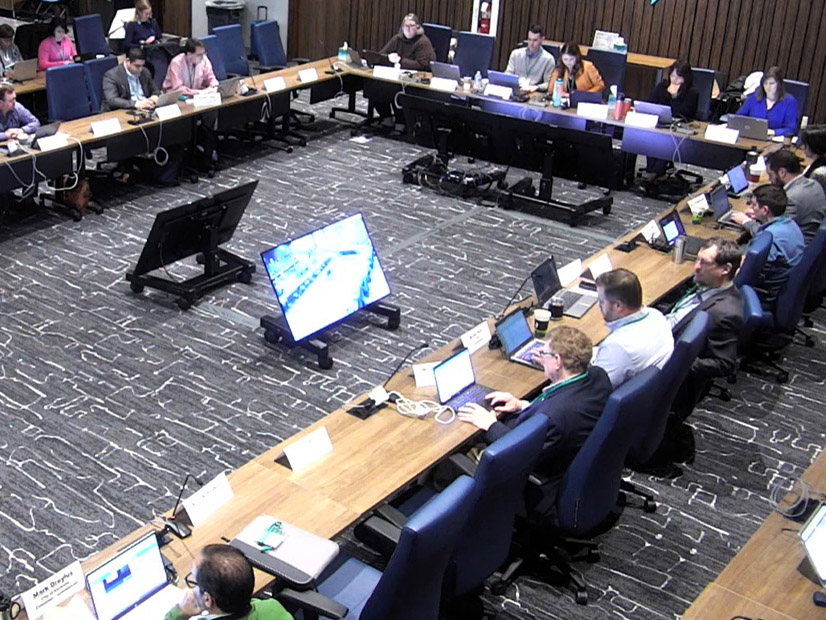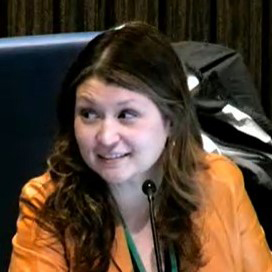ERCOT stakeholders last month moved closer to taking action on a tabled rule change that would address the reliability concerns with inverter-based resources (IBRs).
Staff told the Technical Advisory Committee during its Jan. 24 meeting that the prevalence of IBRs on the system has increased the likelihood of potential instability issues, such as the recent Odessa disturbances. They said the issues are only going to increase along with the continued growth of solar and wind resources. (See NERC Repeats IBR Warnings After Second Odessa Event.)
ERCOT says the Nodal Operating Guide revision request (NOGRR245) would improve the clarity and specificity of IBRs’ voltage ride-through requirements. The NOGRR would align the grid operator’s rules with NERC reliability guidelines and the most relevant parts of the Institute of Electrical and Electronics Engineers standard for IBRs interconnecting with the grid.
FERC also recently issued Order 901, directing NERC to address same risks NOGRR245 takes on.
ERCOT has recommended that TAC approve the change with recent comments it filed. It said a recommended proposal by the committee’s Reliability and Operations Subcommittee is not acceptable, as it does not address the current “significant reliability risk.”
Staff have made several changes to the proposed NOGRR to allow for additional exceptions for documented technical limits. IBRs must:
-
- meet existing requirements and “substantially” meet new requirements, with each plant’s documented technical limit level becoming the requirement for that plant;
- maximize capability through software upgrades and minor hardware upgrade kits;
- accurately represent technical limits in all provided models; and
- meet the latest requirements upon repowering, retrofitting or reinvestment.
They also cannot create any instability, uncontrolled separation or cascading outages for the ERCOT grid.
TAC agreed to resume discussion of the NOGRR at its next meeting, which it rescheduled from Feb. 27 to Feb. 14. The virtual meeting is designed to give stakeholders an opportunity to endorse a recommendation for the Board of Directors’ Feb. 26-27 meetings.
RUC Use Down Sharply
ERCOT saw a “significant” decrease in reliability unit commitments (RUCs) last year compared to the previous two years, staff told stakeholders.
The grid operator had 2,726 instructed resource-hours resulting in 2,500.6 effective hours. In 2022, ERCOT saw 8,244.8 instructed resource-hours and 7,910.5 effective hours; in 2021, effective resource-hours came in at 3,853.1. (See “RUCs Continue to Increase,” ERCOT Technical Advisory Committee Briefs: Jan. 24, 2023.)
ERCOT bought back 509.5 effective resource-hours, a 20.4% rate that matched 2022’s buy-back.
Ryan King, manager of market design, said changes in resource owners’ real-time price expectations and higher demand were among the factors contributing to RUCs’ reduction. While reluctant to identify specific causes for the decrease, he admitted the deployment of ERCOT contingency reserve service in June and higher ancillary service requirements since the 2021 winter storm may have played a role.
“Some of these factors might have been present all the time, and all of these might have been present some of the time, but I’m not sure that we have a really definitive cause and effect,” King told TAC.
He said ERCOT will continue to monitor and report on factors contributing to commitment changes.
The grid operator incurred $3.67 million in RUC make-whole payments, almost exclusively covered through capacity-short charges, last year, along with $3.45 million in claw-back charges.
ADERs now up to 9
Dave Maggio, ERCOT’s market design and analytics principal, said seven aggregated distributed energy resources (ADERs) have been approved to go through the qualification and validation process of commercial operations.
They will join two ADERs that have already qualified to participate in the wholesale electric market; they are providing 9.4 MW of energy and 3.1 MW of non-spinning reserve service since their participation following the first phase of a virtual power plant (VPP) pilot project. (See “2 VPPs Qualified for Market Participation After Pilot Project’s 1st Year,” Texas Public Utility Commission Briefs: Aug. 24, 2023.)
The ADERs will participate in the second phase of the VPP pilot. They will be limited to an 80-MW cap for energy and 40 MW for non-spin.
Data related to the ADERs’ market participation have been “somewhat limited,” Maggio said, but it has still been enough to propose incremental changes for the second phase. Staff plan to present a Phase 1 report and a draft of the Phase 2 governing document to the board and its Reliability and Markets Committee this month.
Jupiter’s Smith Elected TAC Chair
TAC members elected Jupiter Power’s Caitlin Smith as its chair for the next two years, elevating her from vice chair, the position she’s held the past two years. They also elected Oncor’s Collin Martin as vice chair. There were no other candidates.
Members also confirmed the leadership of its subcommittees and sub-groups after elections were held within the stakeholder groups last year:
-
- Protocol Revision Subcommittee: Diana Coleman, CPS Energy, chair; Andy Nguyen, Constellation Energy Generation, vice chair.
- Retail Market Subcommittee: John Schatz, Luminant, chair; Debbie McKeever, Oncor, vice chair.
- Reliability and Operations Subcommittee (ROS): Alexandra Miller, EDF Renewables North America, vice chair.
- Wholesale Market Subcommittee: Eric Blakey, Pedernales Electric Cooperative, chair; Jim Lee, CenterPoint Energy, vice chair.
- Credit Finance Sub-group: Brenden Sager, Austin Energy, chair; Loretto Martin, Reliant Energy Retail Services, vice chair.
Katie Rich was elected as the ROS chair when she was with Golden Spread Electric Cooperative, but she has since changed jobs. A new election will be held at the subcommittee’s next meeting.
Tier 1 Project Endorsed
TAC’s unanimously approved combination ballot included a Tier 1 transmission project that will go to the board for approval. ERCOT labels projects costing more than $100 million and requiring the directors’ approval as Tier 1.
Texas-New Mexico Power submitted the Pecos County Improvement Project last year to ERCOT’s Regional Planning Group for its review. The RPG studied nine options before settling on its recommendation to address the reliability need under maintenance outage conditions near Fort Stockton in the Far West weather zone.
The project consists of about 55 miles of new and rebuilt 138-kV transmission lines and a new substation. It has a capital cost of $114.8 million, with the upgrades expected to be completed by August 2026.
The combo ballot included seven nodal protocol revision requests (NPRRs), single changes to the Planning (PGRR) and Retail Market (RMGRR) guides, and a system change request (SCR) that, if approved by the board and the PUC, would:
-
- NPRR1170: define when a qualified scheduling entity (QSE) representing a resource that relies on natural gas as its primary fuel source should notify ERCOT about gas supply disruptions.
- NPRR1179: ensure that QSEs representing resources with an executed and enforceable transportation contract procure fuel economically and file a settlement dispute to recover their actual fuel costs incurred when instructed to operate because of an RUC. This change would also adjust the RUC guarantee to reflect the cost difference between the actual fuel consumed during the RUC-committed intervals and the fuel burn calculated based on verifiable cost parameters and would clarify that fuel costs may also include penalties for fuel delivery outside of RUC-committed intervals.
- NPRR1195: assign ERCOT-polled settlement metering facilities’ maintenance and repair responsibilities to the facilities’ owner if it is not a transmission and/or distribution service provider (TDSP).
- NPRR1206: clarify the QSEs required to have a hotline and a 24/7 control or operations center, and reconcile the deadline by which QSEs representing resource entities that own or control resources must provide notice that they are terminating their representation and the deadline that resource entities owning or controlling resources to change QSEs with a 45-day timeline.
- NPRR1207: permit the incidental disclosure of protected information and ERCOT critical energy infrastructure information (ECEII) during a tour or overlook viewing of the ERCOT control room provided to eligible persons who have signed nondisclosure agreements and complied with screening and other requirements before accessing the control room.
- NPRR1208: create a new daily ERCOT invoice report listing invoices issued for the current day and day prior at a counter-party level.
- NPRR1211: incorporate the other binding document “Methodology for Setting Maximum Shadow Prices for Network and Power Balance Constraints” into the protocols.
- PGRR109: require interconnecting entities associated with IBRs to undergo a dynamic model review process before the commissioning date and mandate that resource entities owning or controlling operational IBRs undergo a review process before changing settings or equipment that could affect electrical performance and necessitate dynamic model updates.
- RMGRR179: add a communication method so TDSPs can use Texas standard electronic transactions to inform retail electric providers of record which electric service identifiers are affected by a TDSP’s mobile generation or temporary emergency electric energy facility deployment.
- SCR825: modify ERCOT’s current control room voice communication configuration(s) to give QSEs and their subordinate QSEs greater flexibility when assigning agent(s), including allowing sub QSEs to assign agents different from those used by the parent QSE.





